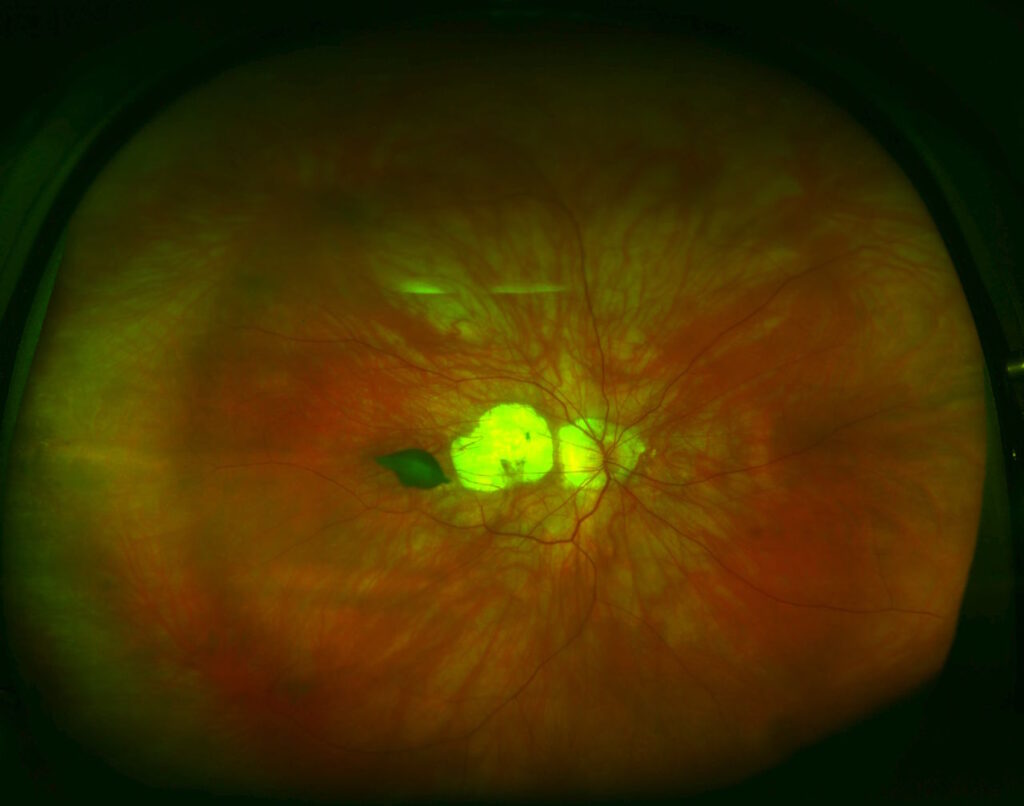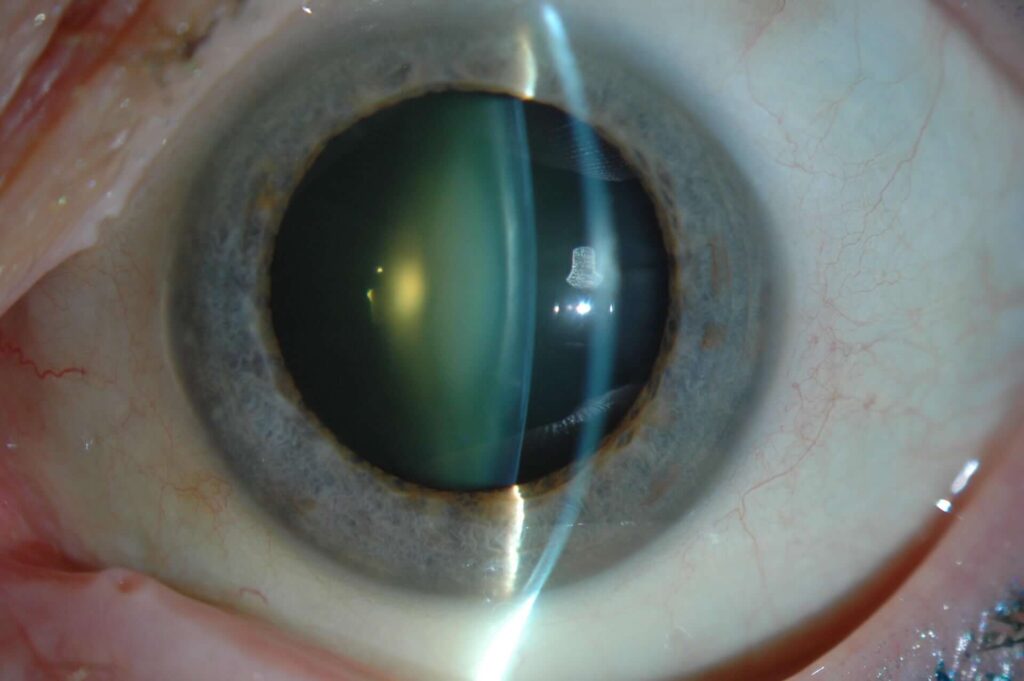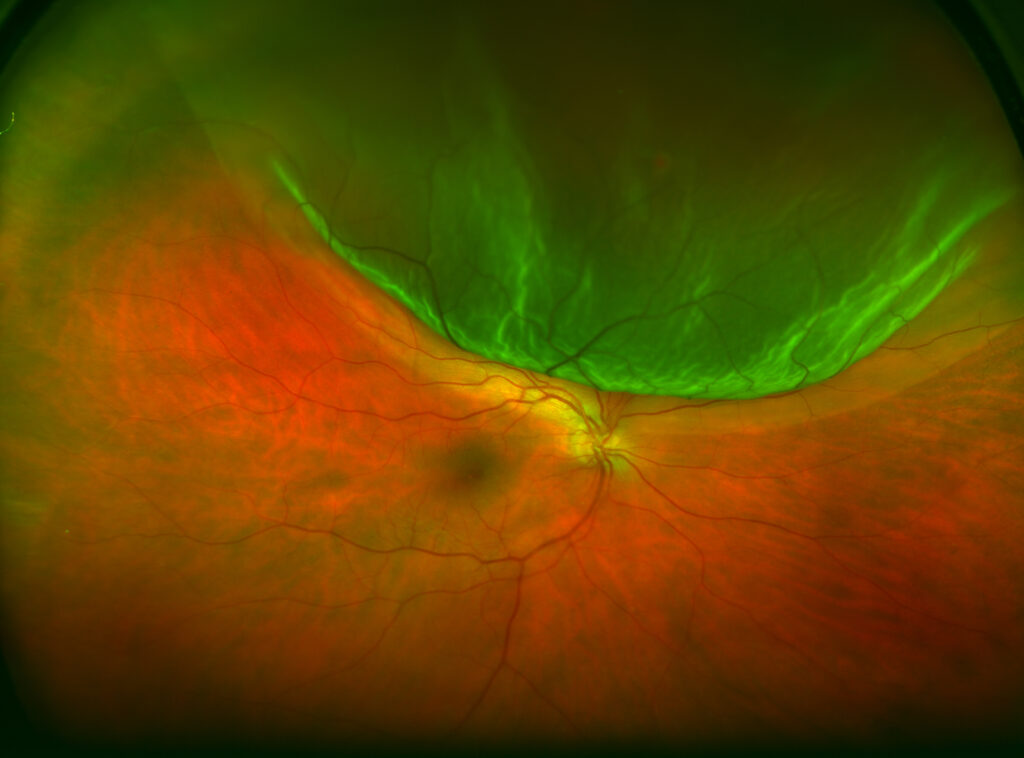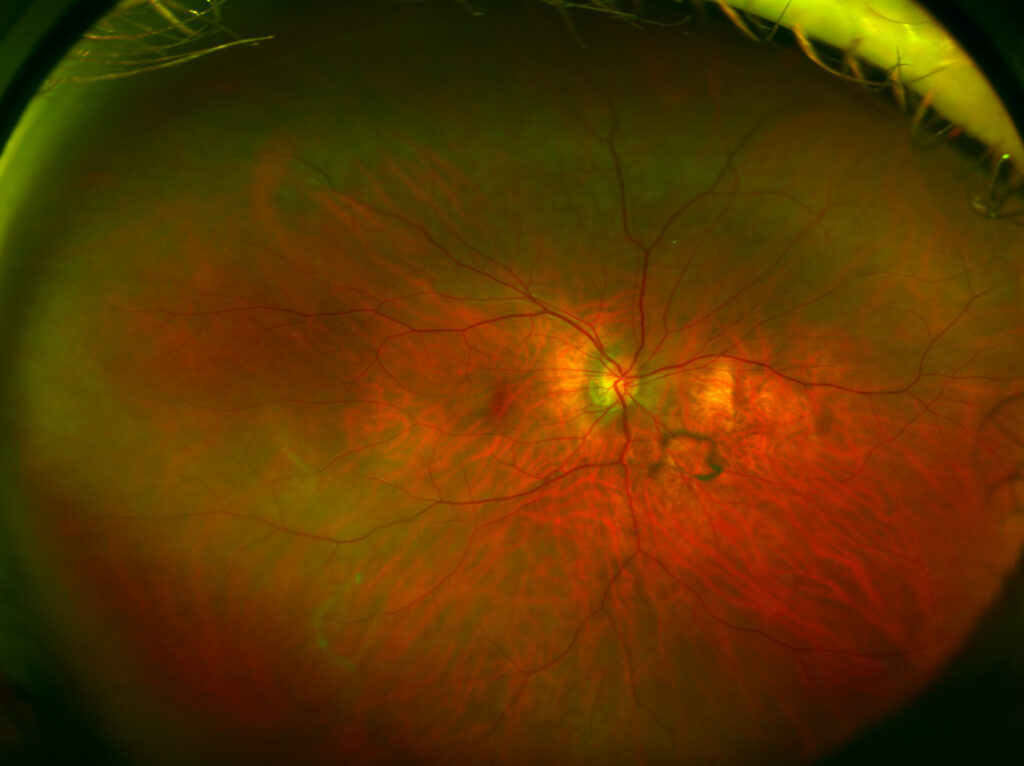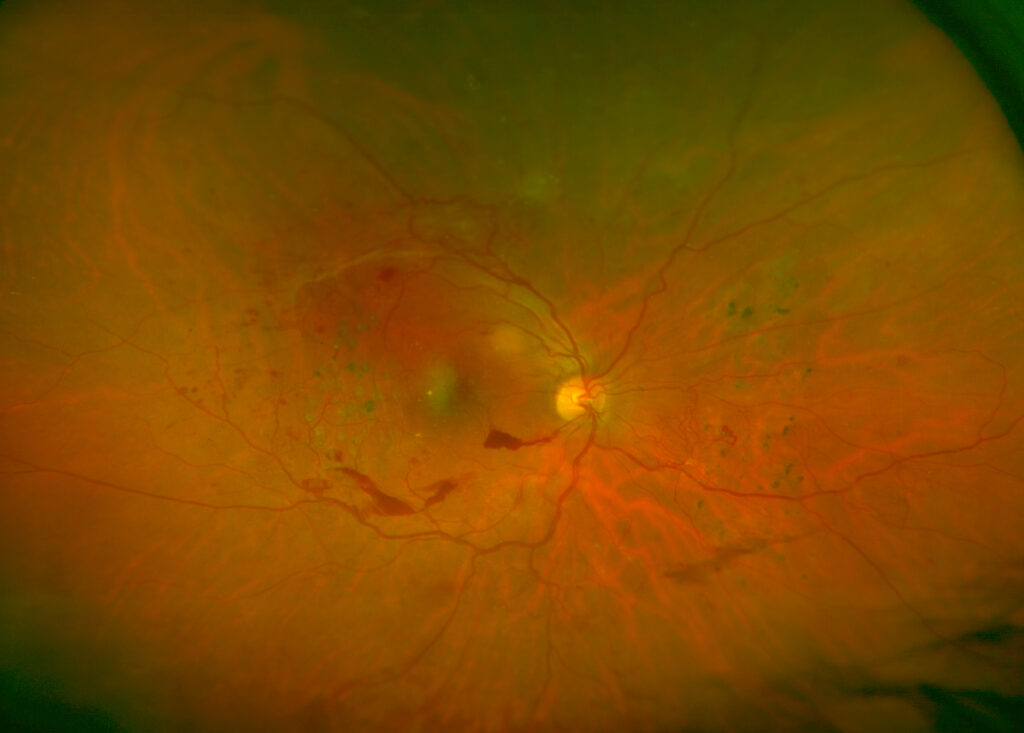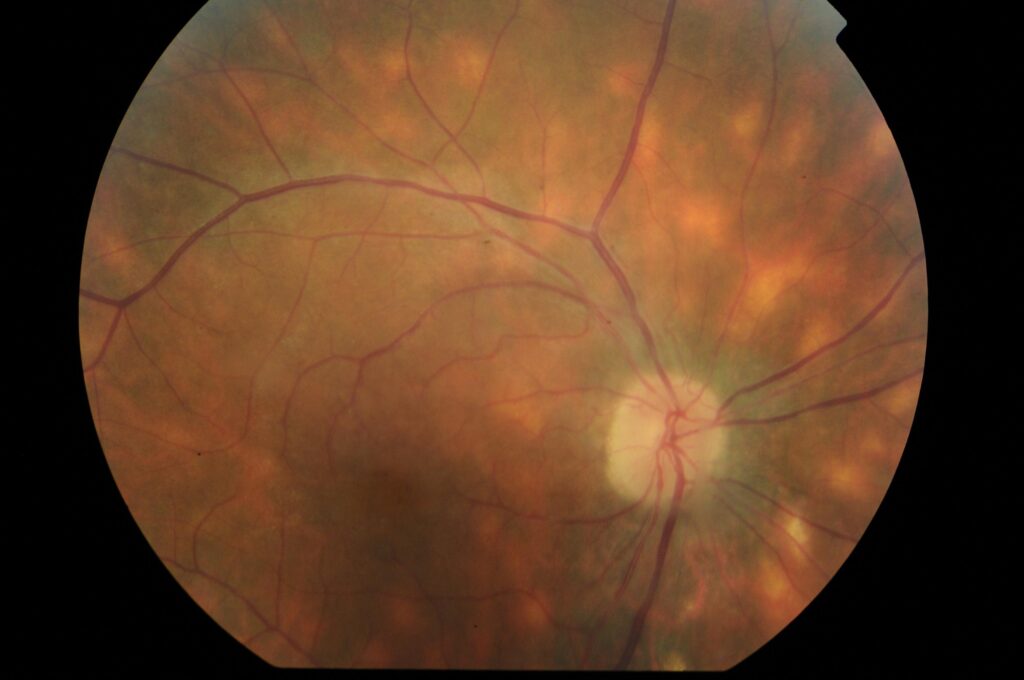Symptoms
Floaters


Floaters or myodesopsia are opacities that “float” in the vitreous gel which fills the eyeball. Although it may seem that you have them in front of your eyes, what you actually see are the shadows of small “lumps” or condensations that form in this jelly-like and transparent liquid.
Associated pathologies
How do floaters affect you?
Floaters are seen as spots of different sizes and shapes (dots, threads, webs …) that move around in your field of vision, when you move your eyes. They are especially noticeable if you look at a light or bright surface.
They worsen with age or due to vitreous detachment and are also more likely to be suffered by people who are short-sighted, diabetic, with intraocular inflammation or vitreous haemorrhages, or who have had a cataract operation or laser surgery on the eye.
Especially when you start to notice them, they can be very annoying. Not trying to chase myodesopsia with your eyes and wearing sunglasses on the street are some of our experts’ recommendations to live with them better.
What should you do if you have floaters?
Floaters are usually not serious, as they are the result of the aging process of the eye and do not cause problems beyond the discomfort of seeing them.
However, they can also be associated with some retinal pathologies; thus, it is important to have an eye check-up for an accurate diagnosis and to prevent complications. Do not neglect this control, especially if myodesopsia have appeared or increased suddenly in your visual field or are accompanied by other symptoms, such as flashes of light or loss of lateral or peripheral vision.
Once the presence of other eye diseases has been ruled out, your ophthalmologist can also advise you on how to adapt and learn to deal with floaters in your daily life. Since they are not harmful in themselves, the treatment options (with laser or vitrectomy surgery) are usually reserved for persistent and severe cases, with a great impact on the development of activities such as reading, working on the computer, driving, etc.
A customised assessment is essential to determine the best solution for you, as floaters can be banal from a pathological point of view, although they are highly relevant and uncomfortable for the patient. Make an appointment to visit Miranza and take care of your eye health.
